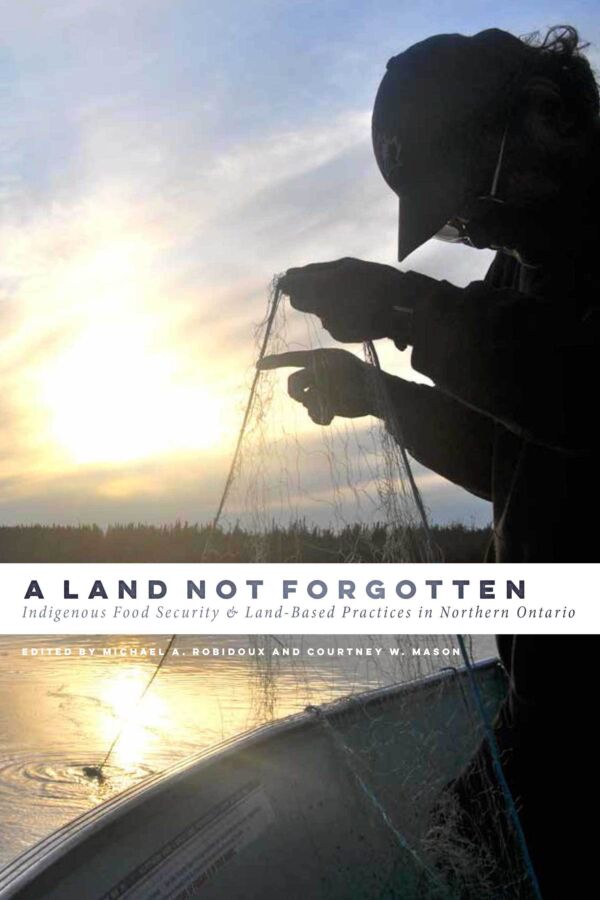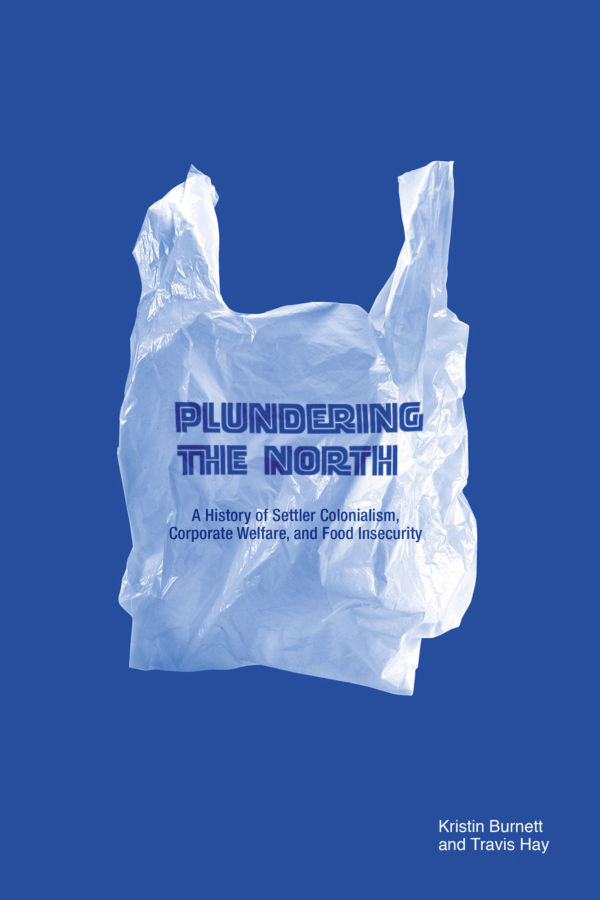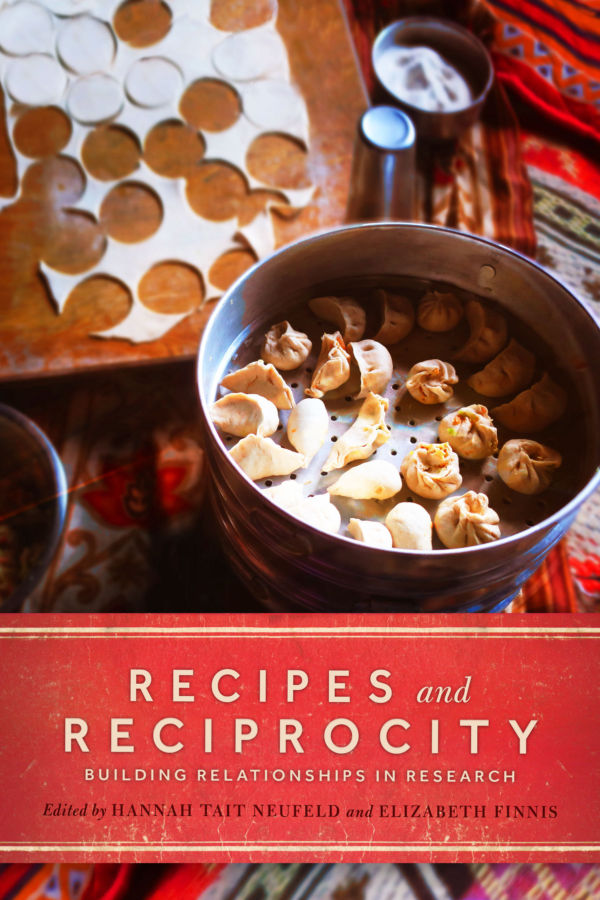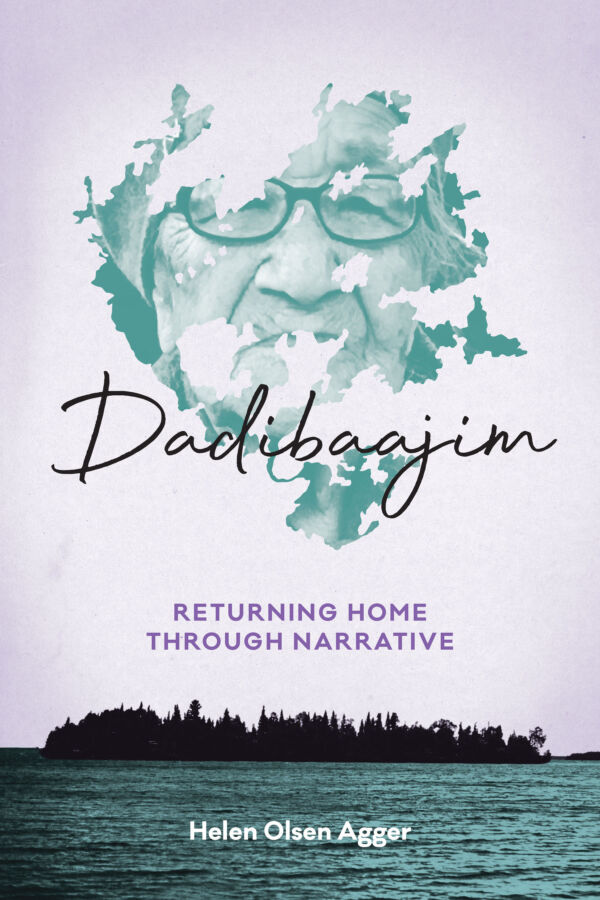Overview
Food insecurity takes a disproportionate toll on the health of Canada’s Indigenous people. A Land Not Forgotten examines the disruptions in local food practices as a result of colonization and the cultural, educational, and health consequences of those disruptions. This multidisciplinary work demonstrates how some Indigenous communities in northern Ontario are addressing challenges to food security through the restoration of land-based cultural practices.
Improving Indigenous health, food security, and sovereignty means reinforcing practices that build resiliency in ecosystems and communities. As this book contends, this includes facilitating productive collaborations and establishing networks of Indigenous communities and allies to work together in promotion and protection of Indigenous food systems. This will influence diverse groups and encourage them to recognize the complexity of colonial histories and the destructive health impacts in Indigenous communities.
In addition to its multidisciplinary lens, the authors employ a community based participatory approach that privileges Indigenous interests and perspectives. A Land Not Forgotten provides a comprehensive picture of the food security and health issues Indigenous peoples are encountering in Canada’s rural north.
Reviews
"A Land Not Forgotten makes an important and timely intervention to support fledging efforts to forge new, more respectful relationships between Indigenous people and settlers in Canada. With its presentation of Indigenous ways of knowing, the researchers’ strong collaboration with the Indigenous communities involved, and the settler authors’ humility, the manuscript itself points a way forward. The authors highlight the colonial destruction of Indigenous food systems and foodways and the resulting impacts on food insecurity and nutrition. Significantly, the authors devote about half of the book to rich, ethnographic exploration of how Indigenous communities are re-asserting food sovereignty in their traditional territories to promote the health and well-being of their people. The book is a testament to the resiliency and creativity of Indigenous communities to solve the problems imposed on them by colonialism. Without glossing over the terrible costs of the colonial legacy that Indigenous people are still paying, A Land Not Forgotten offers hope for a healthier, more food secure future for all of us."
Elaine Power, Associate Professor, School of Kinesiology and Health Studies, Queens University
"A fascinating volume profiling complex, community-based inter-disciplinary scholarship. The book is unique in focusing on work in different specific communities and taking diverse interdisciplinary approaches, yet all of the contributors are united in their participation in the larger collaboration of the Indigenous Health Research Group (IHRG) and its partnerships."
Sarah King, American Indian Culture and Research Journal
“A Land Not Forgotten does an admirable job highlighting both the vulnerability and the resiliency of remote Indigenous communities. It would be useful in college courses in public health or research methods; for health professionals, especially those working in Indigenous communities; and for Indigenous communities seeking to establish relationships with university researchers or even looking for examples of food sovereignty projects to implement on their own.”
Elizabeth Hoover, Native American and Indigenous Studies
About the Authors
Other contributors: Kristin Burnett, Bénédicte Fontaine-Bisson, Simon Frogg, Janice Cindy Gaudet, François Haman, Benoît Lamarche, Joseph LeBlanc, Courtney W. Mason, Shinjini Pilon, Michael A. Robidoux, Desirée Streit
Table of Contents
Prologue
Introduction
Ch. 1 What Happened to Indigenous Food Sovereignty in Northern Ontario
Ch. 2 Understanding the Legacy of Colonial Contact from a Physiological Perspective
Ch. 3 Collaborative Responses to Rebuilding LocalFood Autonomy in Three Indigenous Communities in Northwestern Ontario
Ch. 4 Traversing the Terrain of Indigenous Land-Based Education
Ch. 5 Pimatisiwin: Women, Wellness, and Land-Based Practices for Omushkego Youth
Conclusion






